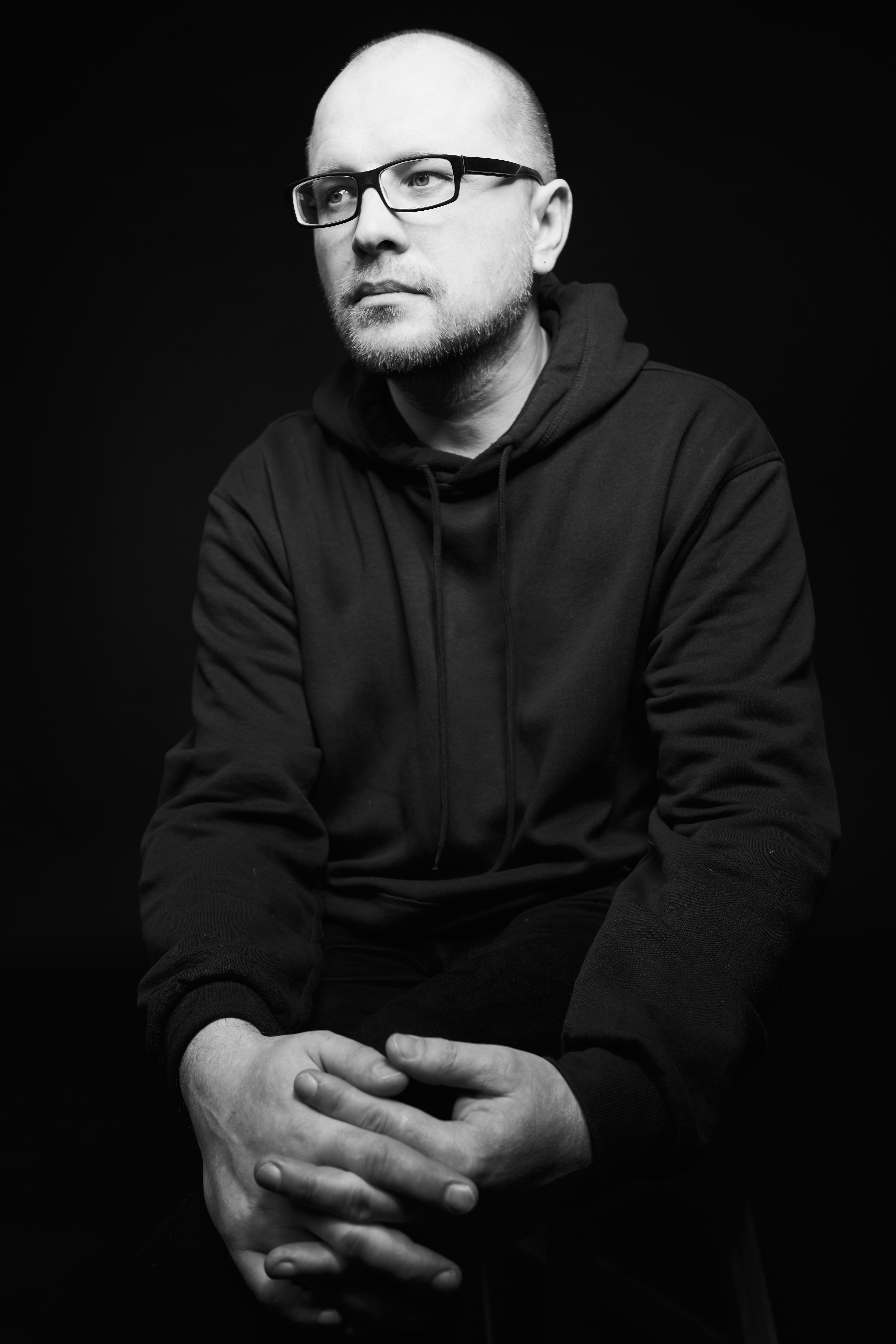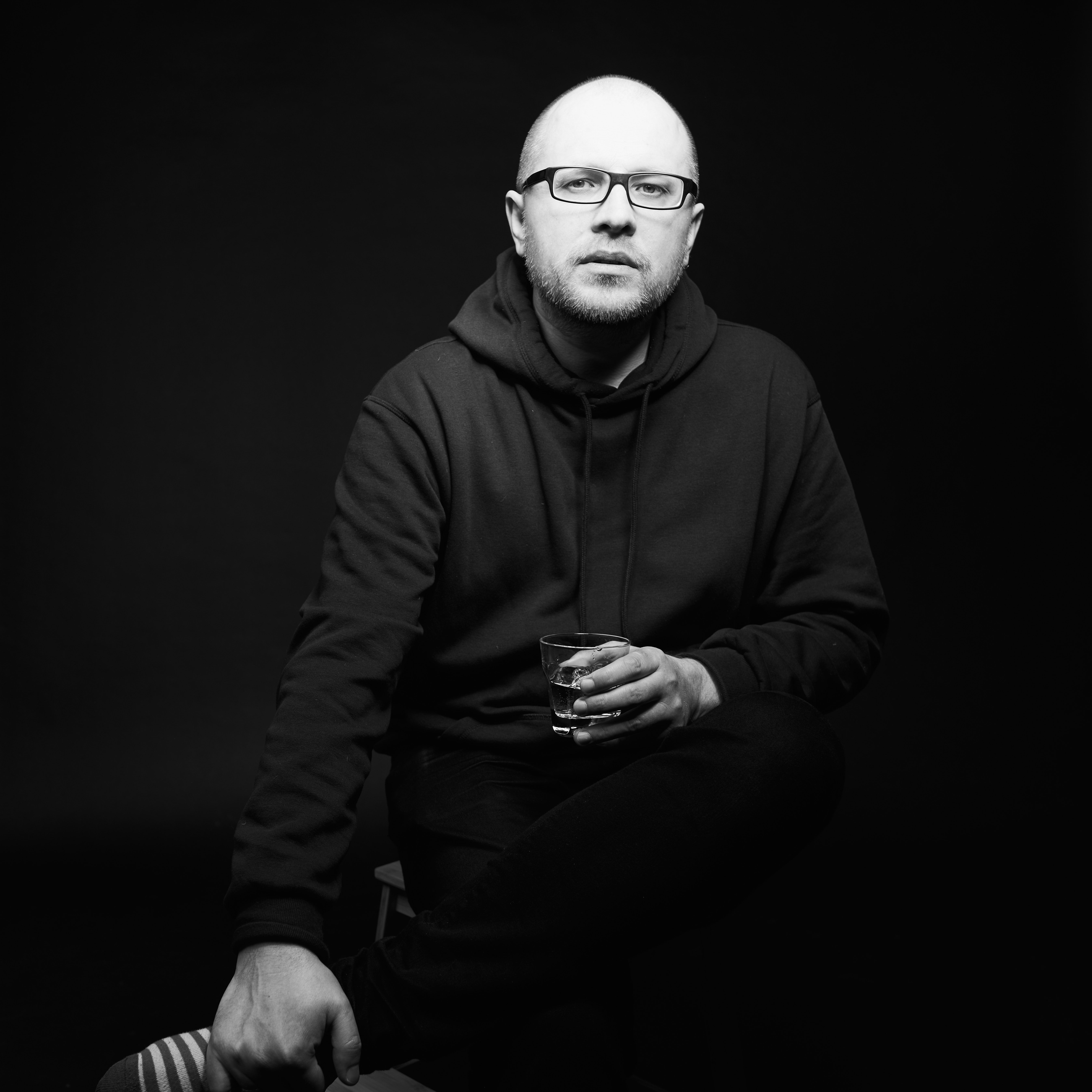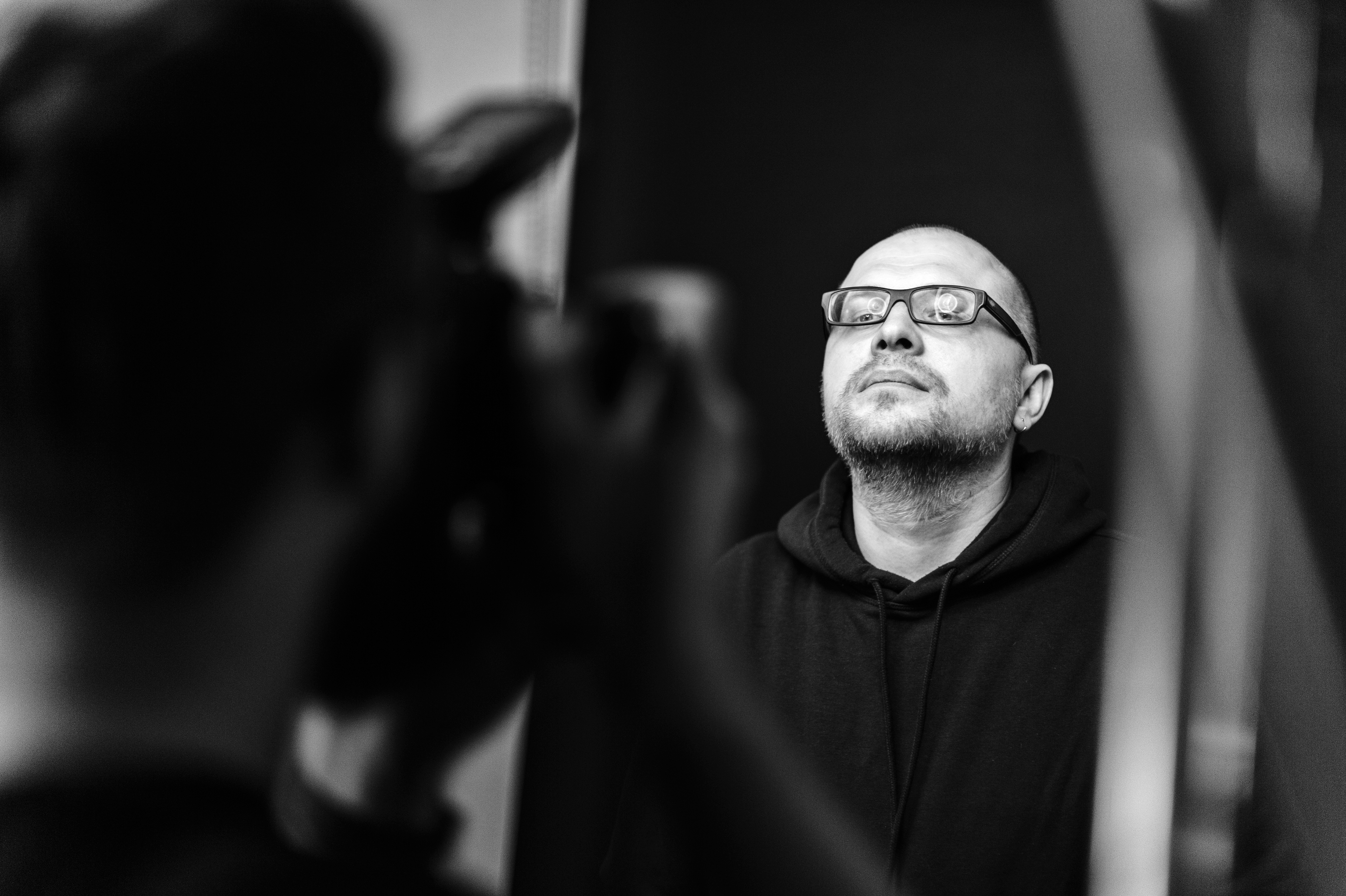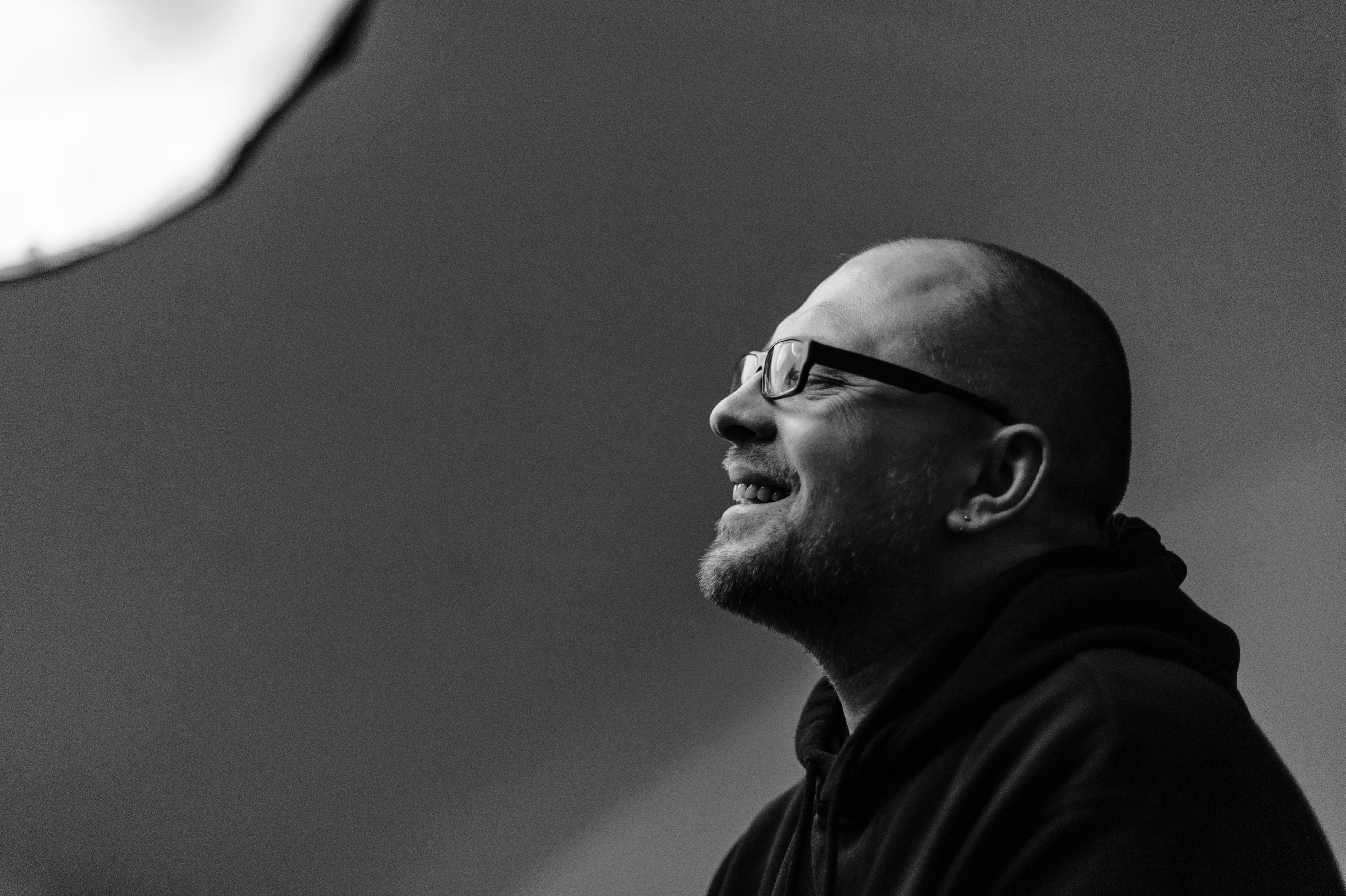Poet, publicist and translator, columnist. Member of the Ukrainian Writers Association. Laureate of the Smoloskip Publishing House Prize. BBC Book of the Year in the Essay category for the book Cerebro, 2018.
– Lately I think a lot about what peace is. Because everyone is completely different, and, nevertheless, understanding it is very important in our world of chaos and toxic social networks. So I wonder, what is peace for you? Is it life outside of Facebook, creativity, walking or something more?
There is no peace in social networks or creativity, but the nature of the restlessness of these two ways of life is different. Social networks are something that already exist either as an extension of life, a kind of "prosthesis", or as a diary that only imitates intimacy. Social networks always assume that you are among people. But everything is complicated there. Social networks can simultaneously play the role of a stimulant and a kind of sedative, depending on how you behave there. Lately, I try to live with everyone in peace, so for me Facebook is only sometimes toxic. On the other hand, creativity - a state of desired inquietude – has been extremely rare lately. That's why for me there are three things that allow you to achieve a state of calm – music, reading books that you don't have to write about, and walking around Kyiv with close friends. Well, family peace, of course, is important above all. It would be the hardest without it.
– Oh, I am most interested in the peace of not writing about the books you read. What kind of peace is this? And why is it calmer to read just for yourself?
I have devoted much of my life, in fact, to learning to read and understand books correctly – first as a literary critic at university, then as an author of critical materials, then as an editor of a literary page. And all these incarnations eventually came into conflict with the part of me that doesn't really want to evaluate artistic texts. Reading often turned into rhetorical activity, in which I mentally structured texts, trying to read something from them. Then at some point I realized that I didn't want that anymore. There is still a need for books, but now I do not try to hoard them or interpret them. I want to enjoy them. Therefore, I read little, carefully and only what is really important to me. At the age of 47, you already understand what is important to you and what is not. I don’t read for fun or any additional knowledge, or a better understanding of the world, but for pleasure. And this pleasure is actually, structurally a quite complex phenomenon. I recently came across a Polish book from 1900 on sewer theory and history. I never thought that such reading could be enjoyed.

– Tell me more about the structure of this pleasure? What pleasure can you get from reading books about sewage?
I'll start with the title: "Sewage of the city of Warsaw as an instrument of Judaism and charlatanism to destroy Polish agriculture and the extermination of the Slavic population on the Vistula", Krakow, 1900. The pleasure is that this is not a work of art read as a literary monument, where allegedly a scientific approach with numbers and real facts combined with savage xenophobia and ethnic prejudice. Reading such texts, you understand how long and carefully in our part of Europe the ground was prepared for the "final solution of the Jewish question", that it did not come to us all by surprise through the efforts of a handful of NSDAP maniacs, but for decades was prepared by ordinary "caring" citizens who have voluntarily instilled hatred of Jews by all available means, from sewage and trade to education and the church. Of course, this is a strange pleasure that borders on deviation, but no one said that the pleasure of reading is possible only in contact with the wise and good. Contemplation of the nature of evil can also be enjoyed.
– What exactly is this pleasure of contemplating the nature of evil? That is, what exactly in this brings you pleasure? Understanding how this evil is born, or knowing that it dies sooner or later?
I do not separate myself from evil. Simply because, as in every person, in me it is "stitched" as well as good. Evil is one version of the same choice that God gave to man in the Old Testament. Therefore, in literature, evil is as abundant as good. Strictly speaking, without evil there would be no literature. Evil, of course, changes rank and each time takes on new forms. However, it was in the twentieth century that literature reached perfection in the study of evil. Although it all began in earnest in the nineteenth century, with the Romantics and their rebellious, torn between evil and good heroes – heroes who challenge higher powers. For me, significant examples of the vivisection of the ethical problem of evil in literature are Louis-Ferdinand Celine, Jean Genet, and Albert Camus. Of course, they are not alone, although these three Frenchmen, it seems to me, have managed to describe the various shades of evil most fully. I have always been terribly fascinated by two aspects – causeless evil and evil with impunity. Evil is multifaceted and magnetic. In "Querelle of Brest", Genet leads the reader to think about the indestructibility of evil and the possibility of its impunity. In general, Camus considers the fight against evil to be almost hopeless, but at the same time the most necessary for a person. And Celine simply sees nothing in man except evil. I would be the last idealist if, watching the evil in literature, I could seriously think that it would ever end. Evil will end only with man. As long as we exist, we will observe it in ourselves and around us. It's just that in God's "choice" one must strive for good, bearing in mind also the fact that, as the Polish philosopher Leszek Kolakowski quite seriously believed, the Devil exists among people not even in the ethical sense, but in the literal sense. He speaks of the Devil as a living being. That's really scary.

– That is, this pleasure of reading about evil is the pleasure of accepting and reconciling with the imperfect, and even sometimes completely inhuman nature, of us as a species? Are we higher creations precisely because we have the ability to realize the baseness of some aspects of our being and live with them without slipping into madness because of our inability to accept reality?
Our supremacy is established and accepted only by us. And it cannot withstand criticism even at the level that the real masters of this planet are viruses and bacteria, and not humans. We can please ourselves as much as we want with the ability of self-awareness, but we will never fully understand the deposits of our unconscious, which we are simply unable to grasp or rationalize to the end. I don't know if this is reconciliation. Perhaps it would be more accurate to speak of a Stoic confrontation with evil. But here in connection with the literature and contemplation of various manifestations of evil in it there is another problem: how good is possible without evil. So I think we are doomed to evil in a sense. Religious people solve the problem of evil with the help of eschatological optics: the end of the world will come and Christ will come for the second time, as for Christians; or, as for Jews, the Messiah will come and solve all knots, moral and ethical conflicts. It is harder for people who are not religious. It is fictional literature that is the laboratory that examines the various levels of our doom in the sense of evil. But to contemplate evil and its structures, it is not necessary to turn to literature. It is only necessary to go to any dog shelter. In each enclosure, you will see some evidence of our moral baseness. No one went beyond man in creating hell on earth.
– Can literature sacrifice evil and deliberately deprive itself of gripping plot, intrigue, etc. for good and peace? And in general, it seems that nothing compares to the literary world in the number of works that aestheticize evil, make it sexual, magnetic and incredibly attractive.
I'm not sure whether literature should be accused of the aestheticization of evil. It is impossible to deny it – here you are right. But blaming literature for that is like complaining about a mirror. Literature is primarily about the plots and character development, more about "how" than about "what". You can't do anything - a person is contradictory. And the good in it is often dull and bland. Remember Andrukhovych's character Albert Vyrozemsky. I don't know if he would have been so attractive and likable if he hadn't done evil, if he hadn't been torn between good and evil, and if he hadn't dared to make a pact with the Devil. If we find the reason for the reader's sympathy for this character, we will also find the answer to the question of the aestheticization of evil. I think it is in this "how". Therefore, evil will never leave literature.
– I do not blame it, but literature – it's still like the main subject of our conversation. But let's move on, what is the appeal and attractiveness of Albert's character for you? I love such individuals for their disobedience and careless attitude for the rules, which often bind us without obvious benefit for the general public prosperity. Or even such a catch-up: if you were an evil character in some literary work, then who exactly? What type of evil do you think would suit you best?
And here I agree with you. Just as a violator of peace and rules, Albert is sympathetic. He is a white raven in the world of black cassocks. I love him not for his evil deeds, but for his desire for loneliness and independence. He is a revived romantic hero. As for my private evil, here I will simply borrow from others what I am not loved for: such as arrogance, snobbery, and sometimes cynicism. So, perhaps, in some work, I could imagine myself as such a top cynical snob. Although people who know me better don't think so – or they don't tell me the truth. I could easily try on such an image. Somewhere I feel the rightness of strangers: pride and arrogance are my weaknesses among all other manifestations of evil. Well, I'm not a saint. I am far from Bishop Borys Gudziak.

– Meanwhile, lately I think to myself that in fact in today's world there is a lack of such contradictory non-conformists in the style of Albert, or someone like Nietzsche, who would show what is conditional intellectual terrorism or challenging acceptable moral norms. For now, even good and evil are strictly polar, and are prevailed either by the overly boring super-good ones or by the evil ones that are disgusting with vulgarity.
I have never lacked such people – at least in literature. Such "half-gremlins" were Thomas Bernhard, Philip Roth, Michel Houellebecq. The latter is still alive – and thank God. Houellebecq is, in my opinion, the uncrowned king among those shakers of norms. And I don't think that good and evil are strictly polar in today's human world. If this were true, there would be no such thing as post-truth, when evil wears the guise of truth and is perceived by people as good.
– And here we risk falling into the problems of politics, and we do not need to. So let's talk about the TV series. If I'm not mistaken, you consistently consume this kind of cultural product (can they be called that?). But why do you watch TV series? What attracts you to them the most?
I'm not attracted to TV series as a cultural product. I just can't ignore them sometimes because there are interesting films among them, as in the "full length" ones. But I'm definitely not their follower, who hunts for them or specifically monitors them. I would still prefer a feature film. TV series are the most insidious thefts of time, which we never have enough. Therefore, they are still exceptions rather than something stable in life. Only books are really stable.
– I completely agree, the current dominance of TV series, which also often claim the title of intellectual, mandatory for viewing, scares me in general. Do you think they will ever be replaced by some even more interactive ways of killing time, or this drug with humanity for a long time?
The same Houellebecq could obviously give you a satisfactory answer to this question, but I think it's been with us for a long time. Producers can engage viewers in the creation of plots. But I doubt that the main thing will change – the principle of seriality, long and slow storytelling. This industry will not close as long as it brings steady and big profits.
– You use the phrase "long and slow storytelling" here, but isn't literature the same? Especially with the fashion for great novels.
I'm not sure there's anything like "fashion for great novels." Just a rough novel – one of the forms of existence of the epic genre. Here, on the contrary, I see a certain durability and permanence: from "Don Quixote" through Mann's "Buddenbrocks" and "Peasants" by Raymont to "Memory" of Nadas, "Affectionate" by Littel or "Books of Jacob" by Tokarchuk, this "fashion" calmly exists in every literary generation. For epic literature, a detailed nuance of the described or fictional reality has long been the norm. Rough novels do not fall from the sky, but have a long tradition. So yes, you are right. Someone – I don't remember who exactly – said that modern TV series are not substitutes for rough novels, but the roughest novels embodied by cinematic means. This is a kind of wandering of the genre between different types of art. With the difference that the textual narrative and the visual one have, quite naturally, different ways of embodiment and influence fall on the recipient. When reading a rough novel, all readers watch their personal "movies". The epic story embodied in the TV series has no such variability. The picture here is the same for everyone. I think this is a fundamental reason not to take the metaphor of TV series as novels literally. Still, there is definitely something in it. The story "The Handmaid’s Tale" based on the novel by Margaret Atwood made the text of the novel available to hundreds of millions of people. By the way, the novel itself is not so rude. But when we abstract from the adaptations of literature and evaluate pure examples of the serial genre, they also have a lot in common with literature. In "Let's go ashore" every step of the heroes is nuanced in detail; the characters, as in rough novels, undergo stunning transformations of character. So there are commonalities here, and there is no shortage of differences.

– I agree. And I have the following question, which is already near-final to our conversation. Is your slightly Buddhist, calm attitude to provocative questions (not in this conversation at all) – is it the result of some meditation, life experience or just innate calmness and balance? I just know very few people who would be able, like you, to maintain neutrality to events and things that simply turn others into aggressive bullies.
Well, first of all, I like provocative questions. And secondly, I haven't been going to prove or lure anyone to my faith for a long time because I have no faith as such. But I'm not calm at all. This impression is probably due to the peculiarities of the outsider view. And I'm really far from balanced. I will say this: all my life I fled from the darkness of life's predestination and ignorance to culture. If you can somehow describe my life "Tao", then you could only do it that way. Apparently, it is culture that gives me this peace, and under the culture I live as a very ordinary "barbarian". It's just that neither people nor I would really be interested in this barbarian at all.
– And why do you like provocative questions? Is this something in the same category as the pleasure of reading books about evil?
No, a little out of that category. Each provocative question helps either to see the problem in a new light, or to assert you in something, or to change your opinion. And most importantly, such questions stimulate thinking. Because nothing more important than thinking has been invented yet, or more beautiful.
translated by Kateryna Kazimirova
Poet, publicist and translator, columnist. Member of the Ukrainian Writers Association. Laureate of the Smoloskip Publishing House Prize. BBC Book of the Year in the Essay category for the book Cerebro, 2018.